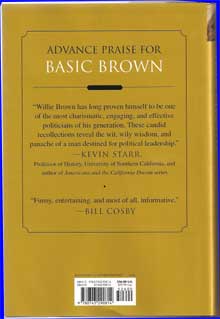By Matt Gonzalez
“[N]or shall private property be taken for public use, without just compensation.†US Constitution, 5th Amendment, Takings Clause
When James Madison wrote the “takings clause†he couldn’t have expected courts would misread it in subsequent years. Madison plainly wrote that only a “public use†would justify taking private property by government, but courts have found that takings resulting in a “public benefit†meet those criteria. This reading falls far from its origins.
Various Magna Carta clauses gave birth to due process rights, resulting from King John’s abusive 13th century reign in England, including section 39, which addresses takings:
“No free man shall be seized or imprisoned, or stripped of his rights or possessions, or outlawed or exiled, or deprived of his standing in any other way, nor will we proceed with force against him, or send others to do so, except by the lawful judgment of his equals or by the law of the land.â€
Chaos forced John to make concessions. He had legitimacy problems stemming from the death of his brother and claims to the throne by a nephew, Arthur of Brittany. Bishops agitated for rights in selecting the Archbishop of Canterbury; and he lost Normandy in a failed war against France, levying heavy taxes in the process.Rebelling barons, tired of his abuses, asserted rights, forever altering the throne’s power. Consequently, due process, grand juries and eminent domain protections were codified on June 15, 1215, near London, when John affixed his seal to Magna Carta.
Our founders incorporated eminent domain constraints in the US Constitution, but subsequent legal decisions have negated those recognized customs.
The Supreme Court ruled in Boston & Roxbury Mill Corp. v. Newman (1832) that a private mill company could flood a neighbor’s property while building a new industrial area because it served a public benefit, though the government did not directly use the property.
Berman v. Parker (1954), held that so-called “blighted†structures could be razed as part of a revitalization plan for the District of Columbia. Even non-blighted property could be forfeited in furtherance of a plan allowing private developers to build office space and a shopping center.
In Kelo v. City of New London (2005), our Supreme Court allowed a Connecticut city’s claim that new jobs and increased tax revenue were sufficient to justify takings of private homes. Justice O’Connor rightfully noted the decision effectively deleted the words ‘for public use’ from the Constitution.
Often justifications for takings never materialize. Only 3 of 80 factories the Boston & Roxbury Mill Dam was to attract were ever built. And the Kelo development has yet to break ground.
The question is what to do if the building of any shopping center can justify the taking of private property?
California voters have considered two statewide propositions since Kelo, yet problems persist.
Voters properly rejected the expansive Proposition 9 (2006) mandating compensation if any state action caused economic loss, while voters passed Proposition 99 (2008), which prohibited residential takings for conveyance to another private person. However, the measure created a new “blight†analysis allowing takings in instances of “public health and safety†and “preventing serious, repeated, criminal activity.†Seemingly clear, these terms are no more likely to keep their meaning than Madison’s “public use†was.
California’s Constitution should be modified:
–Define “public use†narrowly to exclude “public benefitâ€, disavowing takings for all private development. South Dakota does this.
–Require any taking be the “least disruptive†to achieve the desired public use; meaning no other reasonable alternative to the taking exists.
–Mandate compensation be 150% of the property’s assessed market value. Adding a substantial sum to what must be paid disincentivizes government takings. Missouri and Indiana require a minimum of 125% be paid. Kansas requires 200% in some cases.
Governments have a way of encroaching on rights, even settled ones. The Patriot Act, Military Commissions Act, and Foreign Intelligence Surveillance Act are other examples of this. Vigilance is necessary if we’re to benefit from past civil rights struggles.


















0 responses so far ↓
There are no comments yet...Kick things off by filling out the form below.
You must log in to post a comment.